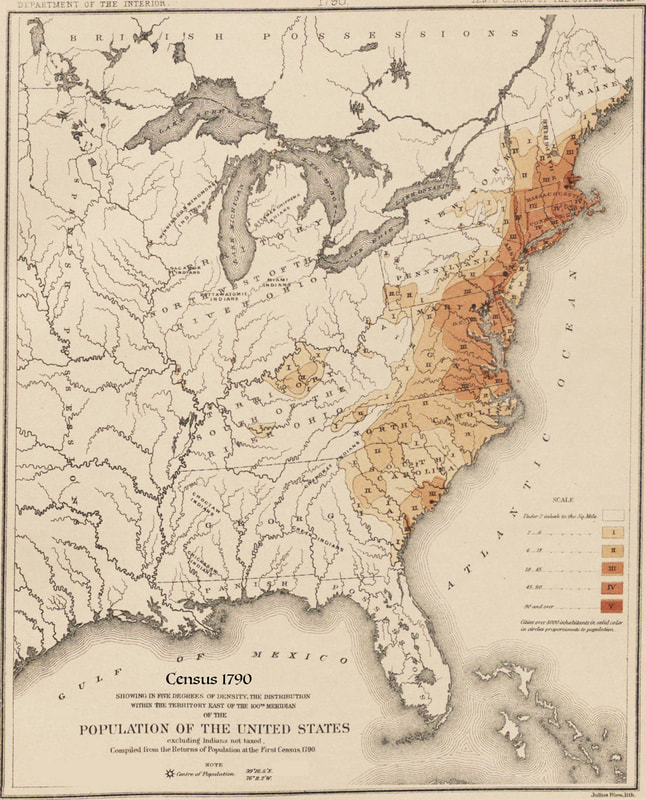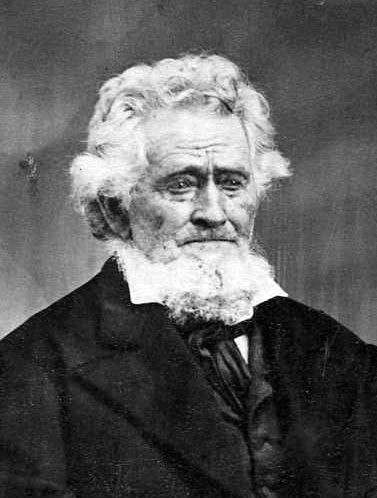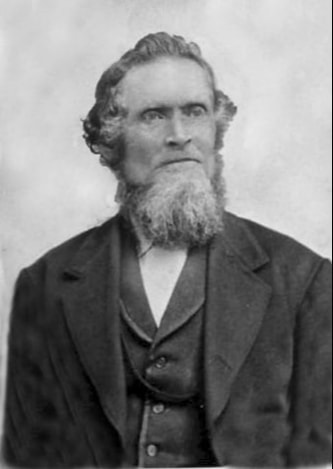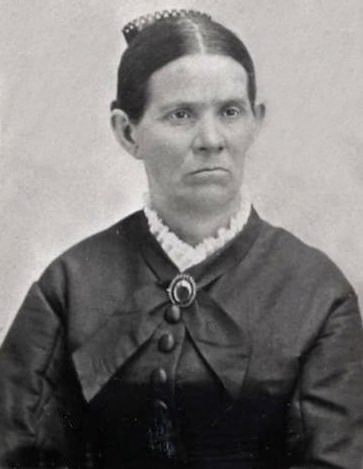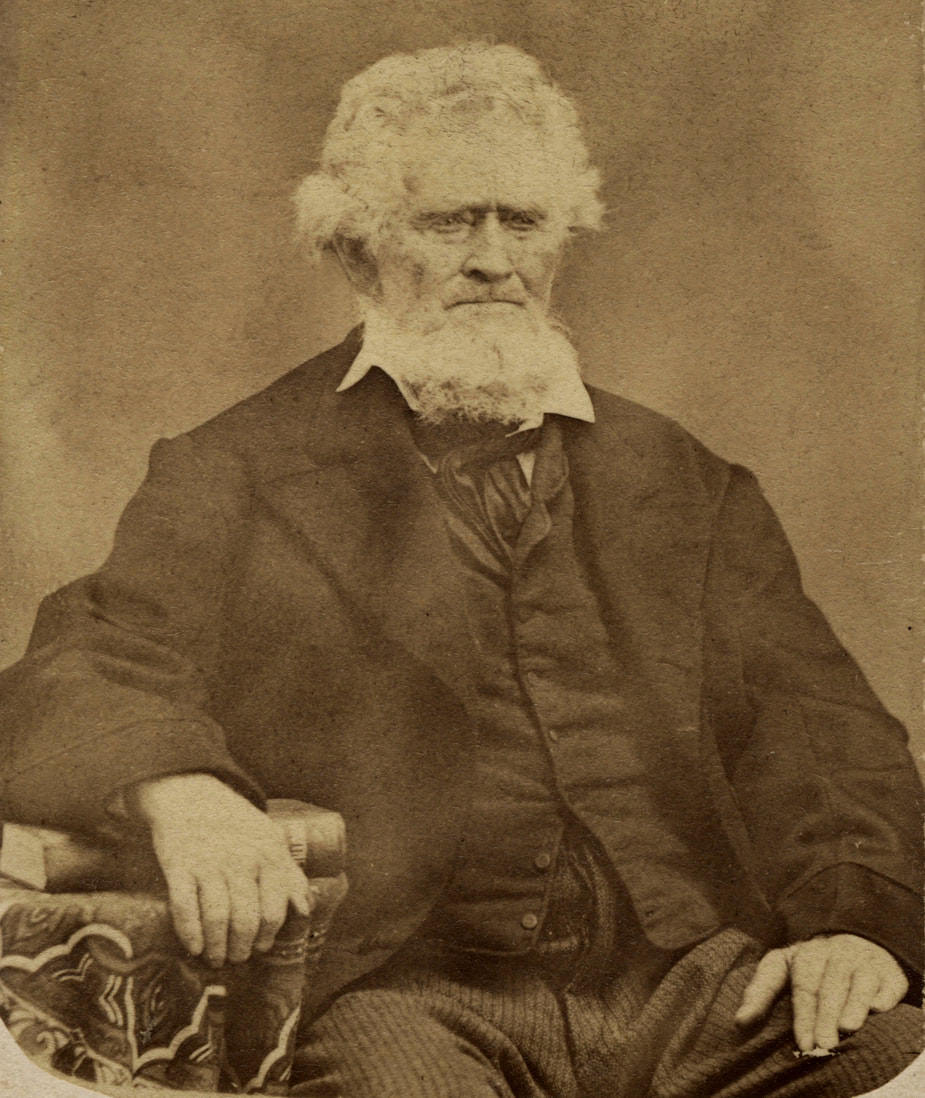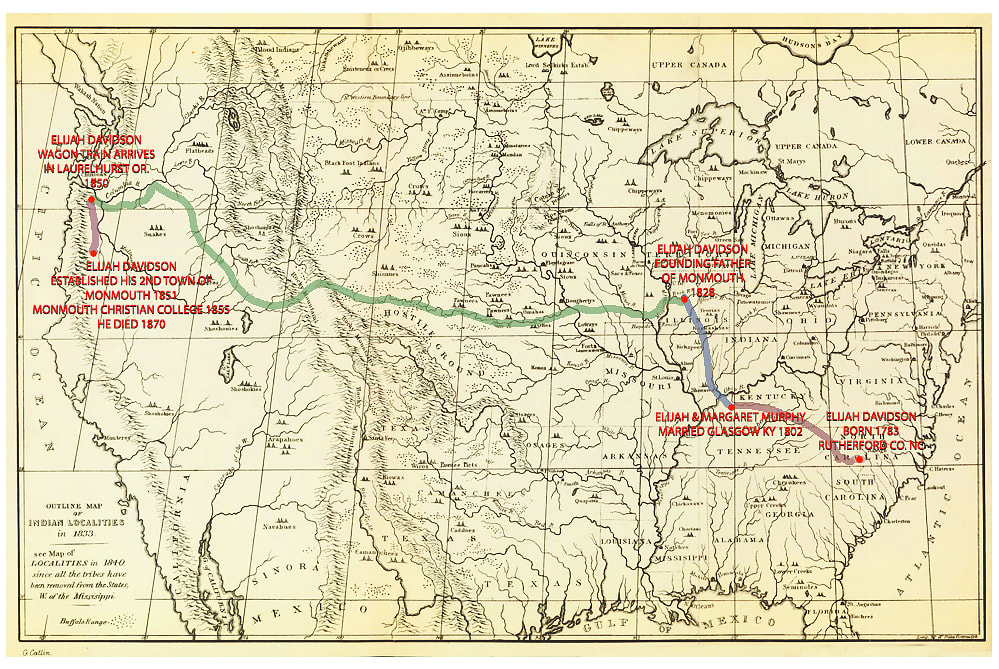Census Map 1790
ELIJAH DAVIDSON, is born 23 February 1783 in Rutherford County, North Carolina.
The long negotiations to end the Revolutionary War with England had finally resulted in the Treaty of Paris, which provided highly favorable boundaries for the United States; which included nearly all land east of the Mississippi River and south of Canada. The Treaty of Paris, signed in Paris by representatives of King George III of Great Britain and representatives of the United States of America on September 3, 1783, ended the American War of Independence (1775–1783) and acknowledges the United States' existence as a free sovereign and independent states.
Elijah’s father Alexander Davidson III, and his future father-in-law, John Murphy fought as patriots at Kings Mountain, Cowpens and Ramsour’s Mill. All three battles were just a few miles from Elijah's boyhood home. After the Revolution, this younger generation of Americans inherits truly a new world and, with it, the responsibilities of working out the very complex interactions of independence, law, state's rights and individual civil liberties.
Elijah is reared as a citizen of the United States’ very first generation of free-born Americans. For the duration of his life, Elijah experiences the world’s first free society, through a vibrant tapestry of the events, callings, decisions, desires, and turns the new abstractions of a democracy, a nation, and free enterprise into a hotly contested and frightful reality.
Through Elijah, we can see that this new republicanism depended on the virtue of its citizenry, a virtue that the middle class increasingly found it difficult to identify properly.
As Elijah grows into manhood, he will have to grapple with the new distinction of free and slave labor, with all its divisive social entailments sparked by the passions of a religious awakening, he advocates from the pulpit for complete and immediate emancipation and falls out of favor with his Baptists brethren, the state's hierarchal associations and a large part of southern societies. At the same time, there are a flood of new opportunities, new land for people eager to break out of their parents’ class dominated colonial systems and venture far out into the often savage and untamed prairie wilderness beyond the Mississippi and the Great Divide.
Mentored by Cater Tarrant, in 1806, Elijah warmly espouses the cause of the Emancipationists, and, with his father-in-law Elder John Murphy, in 1808, they declared non-fellowship with Kentucky's Baptist churches, because it tolerated slavery and help form the Licking- Locust Association, Friends of Humanity movement, where Elijah was ordained to preach.
This must have been difficult because Elijah’s father, Alexander and his older brothers, owned slaves. Elijah’s abolitionist views came about partly because of his adopting the "New Light Religion" and its so-called “heretical views” of free-will over the Baptist’s traditional views of predestination.
Volunteering for the Kentucky Miltia, he fights in the War of 1812 at the Battle of New Orleans. As payment for their service, men like Elijah will received 160-acre land warrants in the Illinois Military Tract, a region between the Illinois and Mississippi rivers, where the Chippewa, Ottawa, and Potawatomi ceded their lands in northern Illinois by treaty at Prairie du Chien in 1829.
As Kentucky continues to enact more and more slave laws, Elijah and other abolitionist families realize they cannot defeat the Democrat's Pro-slavery establishment's hold controlling the state's legislature and decide its time to leave Kentucky for the newly opened slave-free lands of western Illinois.
In the Autumn of 1829, Elijah Davidson, with his in-laws Squire William Whitman and Peter Butler, and others settle on the south side of Cedar Creek, the future site of the town of Monmouth, Illinois. Elijah Davidson erects the first of four cabins built in Monmouth. He owns a cabin and a blacksmith shop. The entire territory that is comprised of Warren, Henderson and Merger counties, contained only thirty or forty families; but others would soon follow, so that by next spring of the following year it was thought proper to send to Peoria and secure an order for a county election. Within one year later, census shows 830 persons in the three counties.
The long negotiations to end the Revolutionary War with England had finally resulted in the Treaty of Paris, which provided highly favorable boundaries for the United States; which included nearly all land east of the Mississippi River and south of Canada. The Treaty of Paris, signed in Paris by representatives of King George III of Great Britain and representatives of the United States of America on September 3, 1783, ended the American War of Independence (1775–1783) and acknowledges the United States' existence as a free sovereign and independent states.
Elijah’s father Alexander Davidson III, and his future father-in-law, John Murphy fought as patriots at Kings Mountain, Cowpens and Ramsour’s Mill. All three battles were just a few miles from Elijah's boyhood home. After the Revolution, this younger generation of Americans inherits truly a new world and, with it, the responsibilities of working out the very complex interactions of independence, law, state's rights and individual civil liberties.
Elijah is reared as a citizen of the United States’ very first generation of free-born Americans. For the duration of his life, Elijah experiences the world’s first free society, through a vibrant tapestry of the events, callings, decisions, desires, and turns the new abstractions of a democracy, a nation, and free enterprise into a hotly contested and frightful reality.
Through Elijah, we can see that this new republicanism depended on the virtue of its citizenry, a virtue that the middle class increasingly found it difficult to identify properly.
As Elijah grows into manhood, he will have to grapple with the new distinction of free and slave labor, with all its divisive social entailments sparked by the passions of a religious awakening, he advocates from the pulpit for complete and immediate emancipation and falls out of favor with his Baptists brethren, the state's hierarchal associations and a large part of southern societies. At the same time, there are a flood of new opportunities, new land for people eager to break out of their parents’ class dominated colonial systems and venture far out into the often savage and untamed prairie wilderness beyond the Mississippi and the Great Divide.
Mentored by Cater Tarrant, in 1806, Elijah warmly espouses the cause of the Emancipationists, and, with his father-in-law Elder John Murphy, in 1808, they declared non-fellowship with Kentucky's Baptist churches, because it tolerated slavery and help form the Licking- Locust Association, Friends of Humanity movement, where Elijah was ordained to preach.
This must have been difficult because Elijah’s father, Alexander and his older brothers, owned slaves. Elijah’s abolitionist views came about partly because of his adopting the "New Light Religion" and its so-called “heretical views” of free-will over the Baptist’s traditional views of predestination.
Volunteering for the Kentucky Miltia, he fights in the War of 1812 at the Battle of New Orleans. As payment for their service, men like Elijah will received 160-acre land warrants in the Illinois Military Tract, a region between the Illinois and Mississippi rivers, where the Chippewa, Ottawa, and Potawatomi ceded their lands in northern Illinois by treaty at Prairie du Chien in 1829.
As Kentucky continues to enact more and more slave laws, Elijah and other abolitionist families realize they cannot defeat the Democrat's Pro-slavery establishment's hold controlling the state's legislature and decide its time to leave Kentucky for the newly opened slave-free lands of western Illinois.
In the Autumn of 1829, Elijah Davidson, with his in-laws Squire William Whitman and Peter Butler, and others settle on the south side of Cedar Creek, the future site of the town of Monmouth, Illinois. Elijah Davidson erects the first of four cabins built in Monmouth. He owns a cabin and a blacksmith shop. The entire territory that is comprised of Warren, Henderson and Merger counties, contained only thirty or forty families; but others would soon follow, so that by next spring of the following year it was thought proper to send to Peoria and secure an order for a county election. Within one year later, census shows 830 persons in the three counties.
ELIJAH BARTON DAVIDSON Jr., born 03 Feb 1819, Prewitts Knob, Barren Co., KY; d. 16 Jan 1888, Williams, Josephine Co., OR. married SOLOMA JONES, on Oct 10 1840 Schuyler Co. Illinois.
On February 12, 1831, "an act to incorporate the inhabitants of Monmouth was publicly posted to call the male citizens of the town of Monmouth" to meet at the school house. It was organized by calling Elijah Davidson to be chair for voting to incorporate the town of Monmouth. Twenty-three votes were cast in favor of the incorporation and none against.
City government was fairly simple in 1836. The first order of business was it’s first ordinance against gambling was passed Dec. 26, 1836; the first ordinance to license a "grocery or tippling shop" came five days later, with a fee of $12.
By this time, Elijah Davidson having the long left the Baptist, had joined the "New-lights" with the likes of Alexander Campbell, Barton Stone and Raccoon John Smith, and placed membership with the Churches of Christ/Christian Church. (America's very first indigenous church movement) He is also appointed pastor of the Christian Church establish in 1831 at Cold Brook – just east of Monmouth. On the 30th day of April, 1831, the Cold Brook congregation calls itself "the church of Christ on Cedar Fork". This first group met originally in members' houses, the courthouse, and a hallway of a downtown building. Elijah also served as the Warren County Treasurer.
The Restoration Movement in Illinois: Warren County
Organized 1831; this church, with its antecedents, is one of the oldest and most interesting in the State. Its first name was Coldbrook, because a cold spring there formed a cold brook. The location was one and a half miles northwest of the site of Cameron. It was on the old trail leading from Peoria to Oquaka and about midway between the sites of Galesburg and Monmouth. A little town grew up around the Coldbrook Church that was called Savannah. With the building of the railroad in 1854-55 the place and name of the church were changed and the village faded away.
The original record-book is still in the possession of the Cameron Church, and from it the following facts are gleaned:
"On the 30th day of April, 1831, this church was constituted upon the belief that the Scriptures of the Old and New Testaments are the only rule of faith and practice and sufficient for the government of the church."
The names of the seventeen persons who signed this covenant were these:
William M., Elizabeth, Elijah, Sr., Margaret, Sr., Elijah, Jr. , Margaret, Jr., Davidson; Henry E., Elizabeth and John G. Haley; John E. and Frances Murphy; Richard and Nancy Ragland, and William, Sarah, Josiah and Julia Whitman.
Three of these men were preachers--William Whitman, John E. Murphy and Elijah Davidson.
The Coldbrook congregation called itself "the Church of Christ on Cedar Fork of Henderson River," Warren County. The record-book says: "Second Saturday in February, 1832. Agreed to send four dollars by Elijah Davidson, Jr., to St. Lewis to purchase a record-book for the church and one gallon of wine (for communion services).
On March 31, 1839, twenty-two persons out of the Church of Christ of Savannah, Illinois, (later known as Coldbrook) were given a letter to begin a congregation in the city of Monmouth, Illinois. The first group met originally in members' houses, the courthouse, and a hallway of a downtown building. On June 16, 1841, Elijah Davidson deeded land on the southwest corner of East Archer and North Second Streets to the Church. A frame building was erected for $800.
1848
In 1848, on January 24th, gold is discovered at Sutter's Mill in the Mother Lode of California. Over the course of the next year, the news of the gold discovery will bring some 300,000 people to California, calling them 49ers. On March 19, 1848, a baby boy is born in Monmouth, Illinois, to the Earp family, they name him Wyatt. The American Mexican War comes to an end, with the signed treaty Mexico cedes virtually all lands of what is considered today, as the southwest of the United States; including states of California, Nevada, Utah, most of Arizona, about half of New Mexico, about a quarter of Colorado, and a section of Wyoming.
As abolitionism became increasingly popular in the United States and tensions between its supporters and detractors grew, the U.S. Congress maintained a tenuous balance of political power between Northern and Southern states. The church's pulpits became the stage for establishing and proclaiming the popular opinions from every denomination. With the increasing migration of Americans to the country's western frontier, the inevitable question which arose asked how will these territories treat the issue of slavery when promoted to statehood. This question had already plagued Congress for decades with increasingly heated and contentious political debates, and vehement sermons from the pulpit. All of it coming to a boil following the Mexican–American War.
On August 14, 1848, the Oregon Territory was established, this includes the current states of Oregon, Washington, and Idaho, as well as parts of Wyoming and Montana. It is the furthermost distance from meddling Washington DC politicians.
With that news, the men and women of the church of Christ in Monmouth, Ill., begin meeting with the purpose to establish a new learning institution in the Oregon Territory "where men and women, alike, may become schooled in the science of living and in the sound fundamental principles of religion."
Then, in 1850, The Fugitive Slave Law or Fugitive Slave Act is passed by the United States Congress as part of the Compromise of 1850 between the primarily Democrat Southern slave-holding interests and Northern Republican Free-Soilers. This Act was one of the most controversial elements of the 1850 compromise and heightened Northern fears of a "slave power conspiracy". This despicable new Law required that all escaped slaves were, upon capture, to be returned to their masters and that officials and the citizens of the northern "free states' had to not only cooperate with this law , but must also assist the southern bounty hunters or face the penalty of jail time. Abolitionists nicknamed it the "Bloodhound Law" for the dogs that were used to track down runaway slaves.
However, Oregon was an autonomous government, not yet a state, and a free territory, and more importantly to the Davidson caravan, not bound by the 1850 Fugitive Slave Act.
Quote from The Monmouth Atlas, printed April 5, 1850: “On Friday last, ten teams taking with them 39 persons left for Oregon. Elijah Davidson, 67 years and an early settler of this county was with them. He was a pioneer here from Kentucky and now takes family, including numerous grandchildren and is bound for the Pacific.”
The Oregon Trail is nearly 2,000 miles of plains, deserts, canyons, and mountains, considered so unfamiliar and inhospitable that it was dangerous to even pause, and unthinkable to settle. It was a six months journey which had to begin in early spring in order to avoid being trapped by mountain snow storms. Travelers considered "Independence Rock" as being halfway to Oregon. If Independence Rock could be reached by July 4th, chances were good that the emigrants could cross the Rockies and reach the Oregon Country before snow fall.
At nearly 68 yrs. old, Elijah Davidson and extended family crossed the plains by ox team from Monmouth, Illinois, ending up in the center of present-day Laurelhurst, suburb of Portland, there they took up a 160 acre donation claim. But, Portland was a wild and hard drinking town of pioneers, prostitutes and gold prospectors, not ideal for Christian family living. Elijah sold the donation claim for the sum of $500, moves southward into the Willamette Valley to start a new town they also call Monmouth, and build a Christian college. This great green valley encircled by mountainous walls, was more like the "Oregon" they expected to find.
Monmouth, in Polk county, was organized in July, 1856, by a group of men who had come to Oregon for the express purpose of organizing a Christian College. Monmouth was the location chosen. "According to the first clerk's book, which has been carefully preserved, 35 pioneers met in July, 1856, and organized a 'Christian congregation; the Bible the only infallible rule of faith and practice.' Among the charter members were Elijah Davidson, John E. Murphy, Albert Lucas, Squire S. Whitman and others.
When the church was organized meetings were held in a little square schoolhouse which stood on the old public square." T. F. Campbell, for many years President of Christian College, was its minister also for many years.
The most pretentious effort toward the establishment of a school in early days was at Monmouth. The news of the Oregon country had gone to the middle states with much promise. John E. Murphey, Elijah Davidson, J. B. Smith, T. H. Lucas, Ira F. Butler, and J. Henry Rountree left Monmouth, Illinois, for the express purpose of estab- lishing a Christian school in Oregon. Upon their arrival they took donation land claims on, and around, the present site of the town of Monmouth. On April 13, 1852, the first steps toward the organization of a school were taken. I n 1854 Murphy, Davidson, Smith, Lucas, and S. S. Whit- man gave 640 acres of land for a school site. A town was platted and lots were sold. It was named Monmouth after their old home in Illinois. I n 1856 a grammar school was built, and J. W. Cowls became the first teacher. In 1858 a house was built costing $5,000, which was known as Monmouth University.
This building served as both church and schoolhouse for a time. I n 1871 a brick build- ing was erected which is now the central wing of the present structure. The bricks were made by the students on the school grounds, and the cost of the structure was $16,000. T. F. Campbell (father of Prince L. Campbell,, a president of the University of Oregon for many years) was the first president, serving from 1869 to 1882. The name of the institution was afterwards changed to Christian University. Tuition was made free to preachers or students for the ministry. D. T. Stanley became president in 1882 and continued until 1890, during which time the south wing was built at a cost of $15,000. The promoters were unable to finance the needs of the growing institution and in 1892 it was turned over to the state of Oregon for use as a Normal School. As such it is used to this day and has the honor of being known as one of the leading Normal Schools on the Pacific Coast.
These efforts toward a higher education and the training of a Christian ministry were not failures, even though the institutions started did finally pass out from the control of Disciples of Christ. Ground must be plowed, harrowed, and seeded before a crop is reaped. Sometimes it must be reseeded. These early efforts were but the breaking of the sod, the mellowing of the soil, the planting of the seed. They paved the way for the effort which was destined to become one of the outstanding educational institutions in the brotherhood.
Elijah would write; "Its sheltered situation, embosomed in mountains, renders it good pasturing ground in the winter time; when the elk come down to it in great numbers, driven out of the mountains by the snow. The Indians then resort to it to hunt. They likewise come to it in the summer to dig the camash root, of which it produces immense quantities. When this plant is in blossom, the whole valley is tinted by its blue flowers, and looks like the ocean when overcast by a cloud."
Elijah Davidson, Squire S. Whitman, William Murphy and Thomas Lucas, took adjoining claims in Polk County. Similar to Monmouth Illionois, the site for the second town of Monmouth was land donated entirely by Christian Church men.
The dream of a Christian College would eventually become known as Western Oregon University.
Elijah Davidson dies on Apr 24th, 1870 in Monmouth, Polk County, Oregon, at age 87. During his lifetime, the country had always had a frontier that needed to be settled. By 1870's, there was of course still the unsettled areas that were broken into isolated bodies of land, but those regions were no longer considered to be a frontier line.
Frontier families, a formative influence in American history was disappearing. The closing of the 19th century was fast approaching and Americans felt they were up against the end of their history as they had known it. The frontier experience that was so central to the American culture was coming to a close. The center of gravity of the American experience has now shifted.
City government was fairly simple in 1836. The first order of business was it’s first ordinance against gambling was passed Dec. 26, 1836; the first ordinance to license a "grocery or tippling shop" came five days later, with a fee of $12.
By this time, Elijah Davidson having the long left the Baptist, had joined the "New-lights" with the likes of Alexander Campbell, Barton Stone and Raccoon John Smith, and placed membership with the Churches of Christ/Christian Church. (America's very first indigenous church movement) He is also appointed pastor of the Christian Church establish in 1831 at Cold Brook – just east of Monmouth. On the 30th day of April, 1831, the Cold Brook congregation calls itself "the church of Christ on Cedar Fork". This first group met originally in members' houses, the courthouse, and a hallway of a downtown building. Elijah also served as the Warren County Treasurer.
The Restoration Movement in Illinois: Warren County
Organized 1831; this church, with its antecedents, is one of the oldest and most interesting in the State. Its first name was Coldbrook, because a cold spring there formed a cold brook. The location was one and a half miles northwest of the site of Cameron. It was on the old trail leading from Peoria to Oquaka and about midway between the sites of Galesburg and Monmouth. A little town grew up around the Coldbrook Church that was called Savannah. With the building of the railroad in 1854-55 the place and name of the church were changed and the village faded away.
The original record-book is still in the possession of the Cameron Church, and from it the following facts are gleaned:
"On the 30th day of April, 1831, this church was constituted upon the belief that the Scriptures of the Old and New Testaments are the only rule of faith and practice and sufficient for the government of the church."
The names of the seventeen persons who signed this covenant were these:
William M., Elizabeth, Elijah, Sr., Margaret, Sr., Elijah, Jr. , Margaret, Jr., Davidson; Henry E., Elizabeth and John G. Haley; John E. and Frances Murphy; Richard and Nancy Ragland, and William, Sarah, Josiah and Julia Whitman.
Three of these men were preachers--William Whitman, John E. Murphy and Elijah Davidson.
The Coldbrook congregation called itself "the Church of Christ on Cedar Fork of Henderson River," Warren County. The record-book says: "Second Saturday in February, 1832. Agreed to send four dollars by Elijah Davidson, Jr., to St. Lewis to purchase a record-book for the church and one gallon of wine (for communion services).
On March 31, 1839, twenty-two persons out of the Church of Christ of Savannah, Illinois, (later known as Coldbrook) were given a letter to begin a congregation in the city of Monmouth, Illinois. The first group met originally in members' houses, the courthouse, and a hallway of a downtown building. On June 16, 1841, Elijah Davidson deeded land on the southwest corner of East Archer and North Second Streets to the Church. A frame building was erected for $800.
1848
In 1848, on January 24th, gold is discovered at Sutter's Mill in the Mother Lode of California. Over the course of the next year, the news of the gold discovery will bring some 300,000 people to California, calling them 49ers. On March 19, 1848, a baby boy is born in Monmouth, Illinois, to the Earp family, they name him Wyatt. The American Mexican War comes to an end, with the signed treaty Mexico cedes virtually all lands of what is considered today, as the southwest of the United States; including states of California, Nevada, Utah, most of Arizona, about half of New Mexico, about a quarter of Colorado, and a section of Wyoming.
As abolitionism became increasingly popular in the United States and tensions between its supporters and detractors grew, the U.S. Congress maintained a tenuous balance of political power between Northern and Southern states. The church's pulpits became the stage for establishing and proclaiming the popular opinions from every denomination. With the increasing migration of Americans to the country's western frontier, the inevitable question which arose asked how will these territories treat the issue of slavery when promoted to statehood. This question had already plagued Congress for decades with increasingly heated and contentious political debates, and vehement sermons from the pulpit. All of it coming to a boil following the Mexican–American War.
On August 14, 1848, the Oregon Territory was established, this includes the current states of Oregon, Washington, and Idaho, as well as parts of Wyoming and Montana. It is the furthermost distance from meddling Washington DC politicians.
With that news, the men and women of the church of Christ in Monmouth, Ill., begin meeting with the purpose to establish a new learning institution in the Oregon Territory "where men and women, alike, may become schooled in the science of living and in the sound fundamental principles of religion."
Then, in 1850, The Fugitive Slave Law or Fugitive Slave Act is passed by the United States Congress as part of the Compromise of 1850 between the primarily Democrat Southern slave-holding interests and Northern Republican Free-Soilers. This Act was one of the most controversial elements of the 1850 compromise and heightened Northern fears of a "slave power conspiracy". This despicable new Law required that all escaped slaves were, upon capture, to be returned to their masters and that officials and the citizens of the northern "free states' had to not only cooperate with this law , but must also assist the southern bounty hunters or face the penalty of jail time. Abolitionists nicknamed it the "Bloodhound Law" for the dogs that were used to track down runaway slaves.
However, Oregon was an autonomous government, not yet a state, and a free territory, and more importantly to the Davidson caravan, not bound by the 1850 Fugitive Slave Act.
Quote from The Monmouth Atlas, printed April 5, 1850: “On Friday last, ten teams taking with them 39 persons left for Oregon. Elijah Davidson, 67 years and an early settler of this county was with them. He was a pioneer here from Kentucky and now takes family, including numerous grandchildren and is bound for the Pacific.”
The Oregon Trail is nearly 2,000 miles of plains, deserts, canyons, and mountains, considered so unfamiliar and inhospitable that it was dangerous to even pause, and unthinkable to settle. It was a six months journey which had to begin in early spring in order to avoid being trapped by mountain snow storms. Travelers considered "Independence Rock" as being halfway to Oregon. If Independence Rock could be reached by July 4th, chances were good that the emigrants could cross the Rockies and reach the Oregon Country before snow fall.
At nearly 68 yrs. old, Elijah Davidson and extended family crossed the plains by ox team from Monmouth, Illinois, ending up in the center of present-day Laurelhurst, suburb of Portland, there they took up a 160 acre donation claim. But, Portland was a wild and hard drinking town of pioneers, prostitutes and gold prospectors, not ideal for Christian family living. Elijah sold the donation claim for the sum of $500, moves southward into the Willamette Valley to start a new town they also call Monmouth, and build a Christian college. This great green valley encircled by mountainous walls, was more like the "Oregon" they expected to find.
Monmouth, in Polk county, was organized in July, 1856, by a group of men who had come to Oregon for the express purpose of organizing a Christian College. Monmouth was the location chosen. "According to the first clerk's book, which has been carefully preserved, 35 pioneers met in July, 1856, and organized a 'Christian congregation; the Bible the only infallible rule of faith and practice.' Among the charter members were Elijah Davidson, John E. Murphy, Albert Lucas, Squire S. Whitman and others.
When the church was organized meetings were held in a little square schoolhouse which stood on the old public square." T. F. Campbell, for many years President of Christian College, was its minister also for many years.
The most pretentious effort toward the establishment of a school in early days was at Monmouth. The news of the Oregon country had gone to the middle states with much promise. John E. Murphey, Elijah Davidson, J. B. Smith, T. H. Lucas, Ira F. Butler, and J. Henry Rountree left Monmouth, Illinois, for the express purpose of estab- lishing a Christian school in Oregon. Upon their arrival they took donation land claims on, and around, the present site of the town of Monmouth. On April 13, 1852, the first steps toward the organization of a school were taken. I n 1854 Murphy, Davidson, Smith, Lucas, and S. S. Whit- man gave 640 acres of land for a school site. A town was platted and lots were sold. It was named Monmouth after their old home in Illinois. I n 1856 a grammar school was built, and J. W. Cowls became the first teacher. In 1858 a house was built costing $5,000, which was known as Monmouth University.
This building served as both church and schoolhouse for a time. I n 1871 a brick build- ing was erected which is now the central wing of the present structure. The bricks were made by the students on the school grounds, and the cost of the structure was $16,000. T. F. Campbell (father of Prince L. Campbell,, a president of the University of Oregon for many years) was the first president, serving from 1869 to 1882. The name of the institution was afterwards changed to Christian University. Tuition was made free to preachers or students for the ministry. D. T. Stanley became president in 1882 and continued until 1890, during which time the south wing was built at a cost of $15,000. The promoters were unable to finance the needs of the growing institution and in 1892 it was turned over to the state of Oregon for use as a Normal School. As such it is used to this day and has the honor of being known as one of the leading Normal Schools on the Pacific Coast.
These efforts toward a higher education and the training of a Christian ministry were not failures, even though the institutions started did finally pass out from the control of Disciples of Christ. Ground must be plowed, harrowed, and seeded before a crop is reaped. Sometimes it must be reseeded. These early efforts were but the breaking of the sod, the mellowing of the soil, the planting of the seed. They paved the way for the effort which was destined to become one of the outstanding educational institutions in the brotherhood.
Elijah would write; "Its sheltered situation, embosomed in mountains, renders it good pasturing ground in the winter time; when the elk come down to it in great numbers, driven out of the mountains by the snow. The Indians then resort to it to hunt. They likewise come to it in the summer to dig the camash root, of which it produces immense quantities. When this plant is in blossom, the whole valley is tinted by its blue flowers, and looks like the ocean when overcast by a cloud."
Elijah Davidson, Squire S. Whitman, William Murphy and Thomas Lucas, took adjoining claims in Polk County. Similar to Monmouth Illionois, the site for the second town of Monmouth was land donated entirely by Christian Church men.
The dream of a Christian College would eventually become known as Western Oregon University.
Elijah Davidson dies on Apr 24th, 1870 in Monmouth, Polk County, Oregon, at age 87. During his lifetime, the country had always had a frontier that needed to be settled. By 1870's, there was of course still the unsettled areas that were broken into isolated bodies of land, but those regions were no longer considered to be a frontier line.
Frontier families, a formative influence in American history was disappearing. The closing of the 19th century was fast approaching and Americans felt they were up against the end of their history as they had known it. The frontier experience that was so central to the American culture was coming to a close. The center of gravity of the American experience has now shifted.
Proudly powered by Weebly
